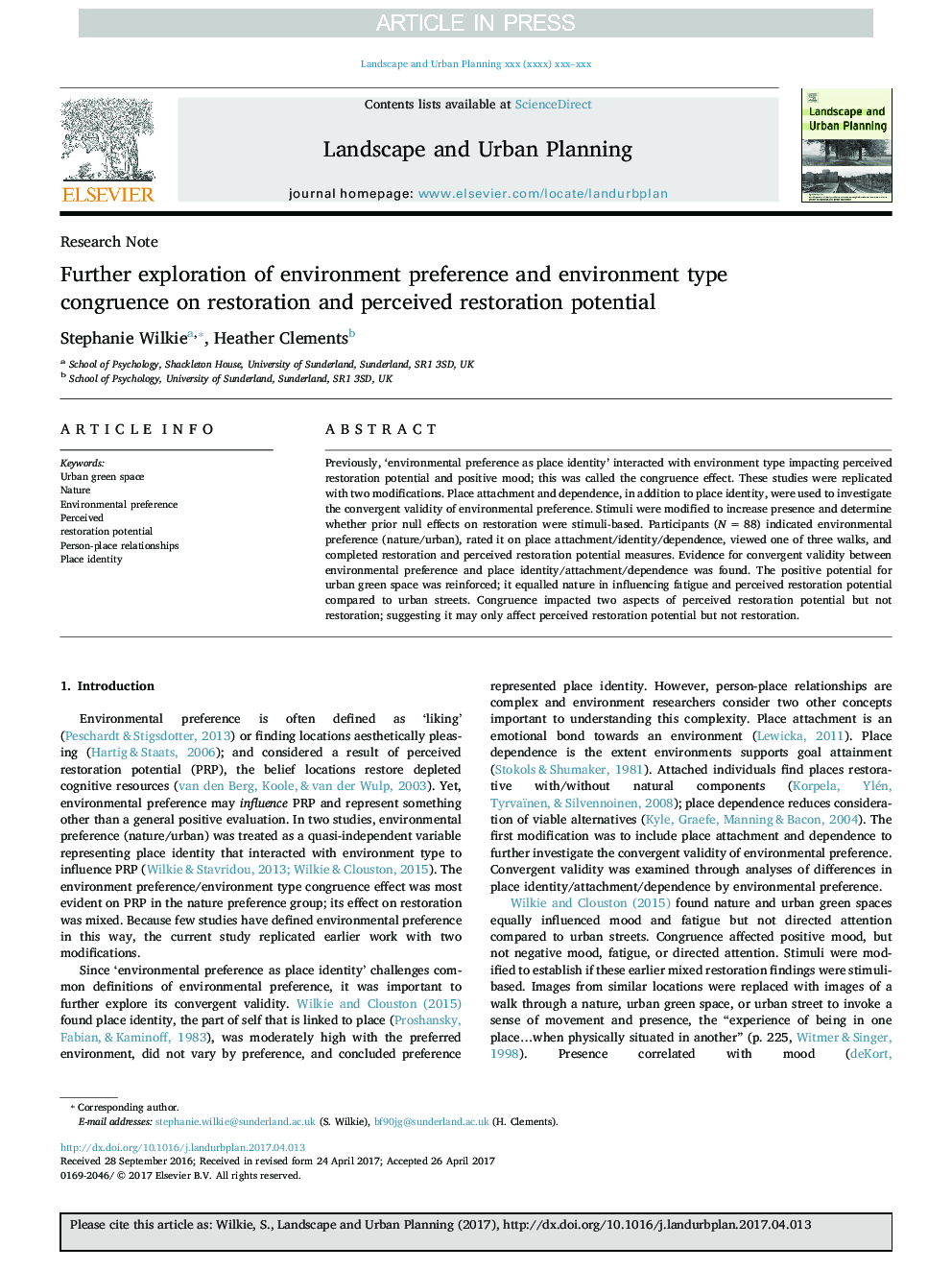| Article ID | Journal | Published Year | Pages | File Type |
|---|---|---|---|---|
| 7460140 | Landscape and Urban Planning | 2018 | 6 Pages |
Abstract
Previously, 'environmental preference as place identity' interacted with environment type impacting perceived restoration potential and positive mood; this was called the congruence effect. These studies were replicated with two modifications. Place attachment and dependence, in addition to place identity, were used to investigate the convergent validity of environmental preference. Stimuli were modified to increase presence and determine whether prior null effects on restoration were stimuli-based. Participants (NÂ =Â 88) indicated environmental preference (nature/urban), rated it on place attachment/identity/dependence, viewed one of three walks, and completed restoration and perceived restoration potential measures. Evidence for convergent validity between environmental preference and place identity/attachment/dependence was found. The positive potential for urban green space was reinforced; it equalled nature in influencing fatigue and perceived restoration potential compared to urban streets. Congruence impacted two aspects of perceived restoration potential but not restoration; suggesting it may only affect perceived restoration potential but not restoration.
Related Topics
Life Sciences
Agricultural and Biological Sciences
Ecology, Evolution, Behavior and Systematics
Authors
Stephanie Wilkie, Heather Clements,
